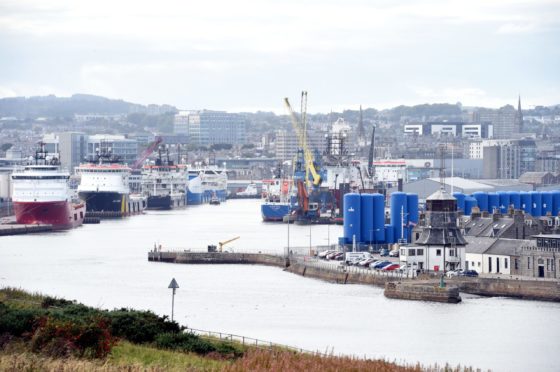The impact of Brexit on exports from Aberdeen has not been as severe as previously feared, councillors have heard.
Concerns were raised with environmental health officers over the effect of increased red tape and documentation at Aberdeen Harbour, and whether that would lead to perishable goods having to be discarded.
Torry and Ferryhill councillor Christian Allard raised the issue at Aberdeen City Council’s public protection committee meeting this week.
However, local authority officers say they are not aware of any perishables having to be discarded, and believe the system they have in place is now operating well despite some initial “teething problems” relating to documentation.
In response to questions from Mr Allard, the council’s protective services manager, revealed businesses are also being offered support in dealing with the extra documentation required as a result of Brexit.
“There are still some teething problems with certification but we are getting those resolved and are able to work with that,” Mr Morrison said.
“As far as I am aware we have had no products which have had to be destroyed or disposed of as a result of that.
“In early January there were some problems across Scotland with products deteriorating due to the hold-ups. Those problems were pretty much resolved in January, and the system seems to be flowing as well as it can do at the moment.
“Regarding exports of food, primarily for ourselves it is fishery products. The majority of our businesses are using export hubs in the central belt. Small consignments can be consolidated on one certificate and therefore reduce down the burden of red tape.”
Although “very little” food travels through Aberdeen, with most exports to mainland travelling through ports in England, officials are planning for the city’s harbour to be a key hub in the transportation of animal feed.
“The implications for the harbour in relation to the export of food have been very minimal,” Mr Morrison added.
“In relation to the import of food, import requirements have not kicked in yet. The requirement for import controls will start on October 1 for documentary checks, with full import controls coming in on January 1.
“There will, however, be an application for the harbour to become a board of control post for the importation of animal feed which will require certification by an officer, and we are in the process of working with colleagues in the Scottish Government and Food Standards Scotland to understand the requirements and demands that will be on the service.
“It is understood it will be a relatively occasional import so there will not be huge ramifications, but we will do what is necessary to support that as an importing hub.”
